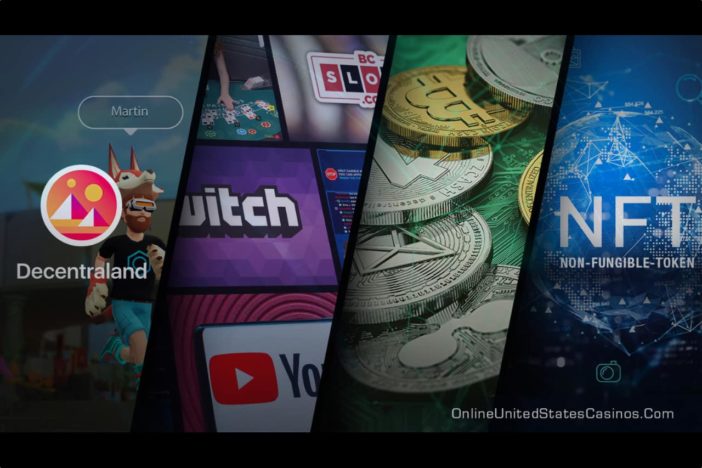No one can argue against the fact that the invention of the internet was a massive game-changer in how people live their lives. Once the World Wide Web began to enter everyday use in 1994, everything slowly evolved, from leisure activities to how companies operate. Web resources morphed existing businesses, and they gave rise to new ones, boosting self-employment rates. Now, as we exit the global pandemic, another reshuffling is taking place. Habits attained during government-issued stay-at-home measures are helping facilitate the growth of novel sectors as new opportunities open up and others shut down.
In the past decade, affiliate marketing, drop shipping, SEO services, and other vocations were lucrative online trends. Now, a new set of possibilities are becoming widely available and awaiting those with the right skill sets to take advantage of them en route to massive profits.
Flipping Virtual Real Estate
Those who have not been paying attention to news sites may not know of the alternate digital realities known as metaverses, which have taken 2021 by storm. The term refers to a virtual shared space that users can explore. They can also conduct financial transactions inside these worlds while interacting with other of their active members. All of the popular metaverses right now are Ethereum-based, meaning their economies run on Ether tokens. There are fungible Ether tokens that act as these world’s currencies and non-fungible ones (NFTs) or valuable digital assets.
Plots of virtual land are one of the most desirable types of NFTs in any metaverse. Users can buy such real estate at dedicated marketplaces. Once they own them, they can resell these plots or build structures on top of them. For example, video gaming pioneer Atari recently signed an agreement for a two-year lease of plots of land in the metaverse Decentraland to open the world’s first virtual gambling establishment. That is a digital gaming venue comparable to slot casinos that are popular on the internet.
Cyber Security Consulting
There is no doubt that the 2020 lockdowns caused people to spend more time online than ever. However, as an unfortunate byproduct of this occurrence, the FBI reported a 300% increase in cybercrimes, and Americans lost close to $100 million in stimulus check scams. Therefore, people are now warier than ever about the dangers of doing business over the internet. In general, most online data transfers are safe, but it is people’s naiveté regarding basic security that gets most of them in trouble.
The global cybersecurity market had an estimated market value of $167 million in 2020. Per new projections, it should continue to grow at a rate of 10.9% until 2028. VPN and anti-malware products are at an all-time high, but so are courses on how to stay safe online. Big-brand companies are now organizing seminars for their employees that educate them on the best safety practices involved in remote work and overall internet communication. Thus, there is a vast market for cybersecurity consulting.
Selling Information Products
First off, what are information products? They are what they sound like, packaged knowledge that gets sold in different forms. Note that this is far from a new sector. It started to gain traction post-2014 and is now expanding at an incredible pace. That is so because information products are inexpensive to make, have a low barrier to entry, and feature low maintenance costs. All that makes them an ideal investment for those with a wealth of knowledge on a specific topic and elementary IT skills.
The targeted customer base for informational products is what the marketing industry calls top performers. These are educated but busy people looking to make fast and substantial changes in their lives, such as starting a new business from scratch. Affiliate marketing is technically a type of information product category. However, online courses, membership sites, ebooks, webinars, and data packs are now the field’s essential drivers.
Telehealth
Telehealth, or telemedicine, is the distribution of health-related services with telecommunication technologies. It is the practice of maintaining a long-distance relationship between a clinician and patient. In 2020, the global health crisis accelerated the expansion of this industry. It not only increased the number of people that use these services but also forced law changes. Some US states now allow the billing of telehealth sessions as regular doctor visits. This telehealth boom has also caused a switch in the training of health professionals, who are now looking to increase their competence in assessing issues remotely.
The term boom often gets loosely used. Nevertheless, it is perfectly applicable to telehealth, as before 2020, telehealth encounters accounted for less than 1% of all doctor interactions. In March of 2020, that percentage jumped to 60%. Naturally, this sector incorporates psychologists, psychiatrists, nutritionists, physical fitness experts, and so on. Therefore, everyone that has expertise regarding boosting people’s mental or physical well-being should explore offering their services remotely. According to Grand View Research, the global telehealth market should hit $298 billion by 2028.
About the Author
Shelly Schiff has been working in the gambling industry since 2009, mainly on the digital side of things, employed by OnlineUnitedStatesCasinos.com. However, over her eleven-year career, Shelly has provided content for many other top interactive gaming websites. She knows all there is to know about slots and has in-depth knowledge of the most popular table games. Her golden retriever Garry occupies most of her leisure time. Though, when she can, she loves reading Jim Thompson-like crime novels.





